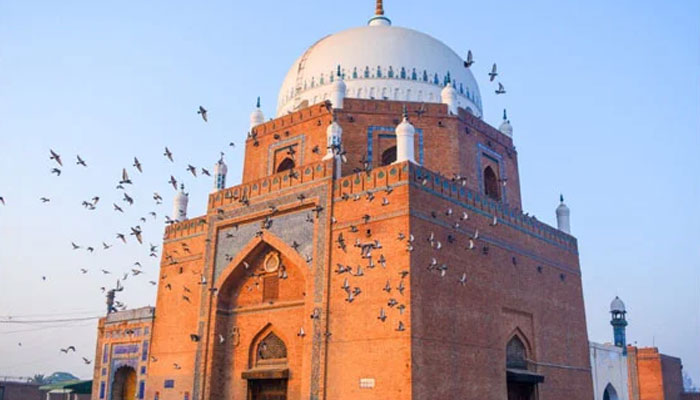Southern Punjab needs attention
With its semi- or quasi-provincial status, it is poised to play an active and dynamic role in political economy of Pakistan
Pakistan is a country of diverse cultures and languages consisting of about 250 million people. Southern Punjab is part of the country’s biggest province, possessing a big demographic and economic potential to help towards economic growth.
With its semi- or quasi-provincial status, it is poised to play an active and dynamic role in the political economy of Pakistan. However, the situation there is dismal. The dilapidated conditions of people in South Punjab deserve the attention of policymakers and rulers at the helm of affairs, as it can play a pivotal role in reviving the political and economic strength of Pakistan.
Pakistan is, by and large, still an agrarian society with a large base of its economy depending on agriculture. One can imagine the importance of agriculture – often called the backbone of the economy – from the fact that almost 24 per cent of the GDP is contributed by the agriculture sector alone.
Southern Punjab is considered one of the most productive contributing territories in agriculture. All of its three divisions – Multan, Bahawalpur and Dera Ghazi Khan – are fertile lands of agriculture, producing and contributing almost 52 per cent of the total agriculture of Punjab, with a share of almost 40 per cent in the province’s population. The main staple crops are cotton, sugarcane, wheat and vegetables besides mango production in large quantities, although climate change is a new phenomenon disturbing all of our economic planning so far as agriculture is concerned.
The Special Investment Facilitation Council (SIFC) has included agriculture in its mandate to attract investment from abroad, especially from Middle Eastern countries, including but not limited to Saudi Arabia, the UAE and Qatar for corporate farming in Pakistan. The China-Pakistan Economic Corridor (CPEC) in its next phase is also emphasizing corporate farming.
In this regard, southern Punjab holds great importance. Vast state lands in various pockets in all three divisions, especially Cholistan in Bahawalpur, were recently allotted and acquired under the SIFC to utilize them for corporate farming, attracting investment from abroad.
The area also has an issue of water scarcity which needs to be resolved promptly if we are to utilize the land for corporate farming. The people of southern Punjab may be taken into confidence over development issues, especially the allotment of land, but the point remains that all these barren lands were lying vacant and the locals were not getting any benefit. Now that the concept of corporate farming is being introduced, bringing with it a lot of potential for foreign direct investment (FDI), locals will also benefit from these new emerging opportunities. The importance of southern Punjab cannot be overemphasized so far as agriculture landscaping and corporate farming are concerned, as it is vital for the economic uplift of Pakistan.
The industrial sector also has a strong presence in southern Punjab. Agriculture-based industries have flourished, especially sugar, textile and flour mills and cotton ginning factories, contributing almost 50 per cent of sugar production and supplies all over Pakistan. There is a need for progressive farming; there are a large number of progressive farmers who believe in corporate farming.
Policy intervention is needed to attract investment in this vital sector of the economy, taking care of climate change and the environment for the overall good of the area. Farmers in southern Punjab need the government’s support to help realize the dream of a prosperous, progressive country.
Southern Punjab has become all the more important for multiple reasons ranging from economics to politics. People in the area speak one of the oldest and sweetest regional languages called Seraiki, comparable to the sweetest languages like French and Persian. Most of the people are uneducated, as the literacy rate is at the lowest, touching around 45-50 per cent among men, while the female literacy rate is not more than 35 per cent.
The people of the area are generally poor, deprived of the basic amenities of life with limited means of earnings. The most affected division suffering from acute poverty is Dera Ghazi Khan and Bahawalpur, where most political leaders and representatives are indifferent to the development of the area. The poor generally depend on their agricultural produce or alternatively, go to the Middle East to earn their livelihoods.
The deprivation is at such a scale that people feel alienated from the system, hence propping up the demand for a separate province. The beneficiaries of such alienation are those landlords who are in politics. They are only interested in winning elections. Since they live in the posh areas of Lahore or Islamabad, they have no interest in resolving the issues or problems of the people of their area. They prosper and thrive over the backwardness and poverty of the people, which is quite unfortunate. We see the Sardars, Makhdooms, Qureshis, Abbasis and Chaudhrys in the assemblies without any debate or discussion on the development agendas of their areas. Hence, the demand for a separate province is gaining strength day by day.
The opportunist politicians of the area smartly formed the Janubi Punjab Suba Mahaz to cash in on the deprivation and sentiments of the locals. Pseudo-political leaders have come out in the open, and people follow them as they are at least translating their sentiments into words – giving voice to their demands. They are, in fact, exploiters of their demands.
Now the voice of the people is so strong that it cannot be ignored, the southern Punjab area has become a hub of politics. Those who support the Seraiki cause will ultimately win the elections and form government in the future. The people of the area are overcautious when favouring any political party.
Now that the government is formed and a coalition government is struggling to cope with political and economic challenges, there is a need to prioritize southern Punjab as a policy for the economic uplift of Pakistan. There is a need to create a full-fledged province, as promised to the people of southern Punjab, for which the South Punjab secretariat is already functioning.
This needs to be strengthened by giving powers to the secretariat with a due share in development funds and annual development plans instead of creating hurdles on the way to progress owing to the very reasons that it could contribute a lot towards improving the economy of Pakistan.
The writer is a former additional secretary and can be reached at: hassanbaig2009@gmail.com
-
 Why Nicole Kidman 'not Rushing' Into Love After Split From Keith Urban?
Why Nicole Kidman 'not Rushing' Into Love After Split From Keith Urban? -
 Benny Blanco's Dirty Feet In Debut Podcast Divide The Internet
Benny Blanco's Dirty Feet In Debut Podcast Divide The Internet -
 Jeffrey Epstein Blamed King Charles As Andrew Left Trade Enjoy Job
Jeffrey Epstein Blamed King Charles As Andrew Left Trade Enjoy Job -
 King Charles Asked To Lean On Princess Anne To Avoid ‘media Circus’
King Charles Asked To Lean On Princess Anne To Avoid ‘media Circus’ -
 Passenger Wins £10,000 Payout From Heathrow Airport After 100 Ml Liquids Dispute
Passenger Wins £10,000 Payout From Heathrow Airport After 100 Ml Liquids Dispute -
 Eric Dane's Costar Under Fire For Hurling Accusations At Him After His Death
Eric Dane's Costar Under Fire For Hurling Accusations At Him After His Death -
 Queen Camilla Greets The Paddington Bear At BBC’s 500 Words Grand Final
Queen Camilla Greets The Paddington Bear At BBC’s 500 Words Grand Final -
 Chinese Astronauts Finally Reveal Why Spacecraft Left Them ‘stranded’ For 437 Days In Space
Chinese Astronauts Finally Reveal Why Spacecraft Left Them ‘stranded’ For 437 Days In Space -
 Sinitta Makes Shock Admission About Marriage To Andy Willner Post Simon Cowell Heartbreak
Sinitta Makes Shock Admission About Marriage To Andy Willner Post Simon Cowell Heartbreak -
 Bill Gates Calls Ties To Jeffrey Epstein 'huge Mistake,' Reveals Past 'affairs'
Bill Gates Calls Ties To Jeffrey Epstein 'huge Mistake,' Reveals Past 'affairs' -
 Switzerland Announces One-time Compensation For Swiss Bar Fire Victims
Switzerland Announces One-time Compensation For Swiss Bar Fire Victims -
 Ryan Coogler Shares Thoughts About Building Community Of Actors Amid 'Sinners' Success
Ryan Coogler Shares Thoughts About Building Community Of Actors Amid 'Sinners' Success -
 Heidi Klum Gushes Over Diplo Collab 'Red Eye' Despite DJ Falling Asleep During Video
Heidi Klum Gushes Over Diplo Collab 'Red Eye' Despite DJ Falling Asleep During Video -
 Israel Behind Majority Of Journalist Deaths Worldwide, Watchdog Claims
Israel Behind Majority Of Journalist Deaths Worldwide, Watchdog Claims -
 'It Would Become A Circus' : Inside Jane's Turmoil For 'little Sister' Fergie Whose Hidden From The World
'It Would Become A Circus' : Inside Jane's Turmoil For 'little Sister' Fergie Whose Hidden From The World -
 Inside Cardi B's Real Feelings Related To Stefon Diggs Split Post One Year Of Romance
Inside Cardi B's Real Feelings Related To Stefon Diggs Split Post One Year Of Romance




